In this episode of Meet The Magicians I sat down with Gonzalo Noqué. Once a professional musician, performer and teacher, he is now the owner/operator, recording engineer and producer at Eudora Records. Gonzalo’s musical journey has brought him down many different paths in life. His story is intriguing, entertaining and genuine, but above all it is inspiring. His outlook on work (and on life in general) is a refreshing take on loosening your grip and following your instincts. I thank him for his time and his beautiful DSD records. Without further adieu, please enjoy Gonzalo Noqué.
Gonzalo’s Desert Island Albums
-
The Violin and Harpsichord Sonatas [Double Album] [Pure DSD]€20,99 – €37,49
-
Schubert and Schumann: Sonata D. 960 – Davidsbündlertänze, Op. 6 [Pure DSD]€17,99 – €47,49
-
The Late Piano Sonatas & Bagatelles [Pure DSD]€16,99 – €34,49
Can you tell me a bit about your childhood, and maybe when or how you first became interested in music?
Well I was born in Madrid, and almost all of my life I’ve been a musician. Actually I still consider myself a musician first. All of my educational background was as a classical guitarist. I studied here in Madrid, and then went on to study in Salzburg, Austria. But now, after many years and while looking back over everything, I see that what I loved most was listening to music. Also from the very beginning of my musical studies I loved recording. While I was busy at the conservatories I was always recording myself playing guitar, so it went side-by-side. I always loved listening to the differences in recordings – listening to albums and hearing, or rather feeling the sound in each recording. As I said, now with time passed I can see that this is what I loved even more than performing on the guitar, which at that time was what I thought my path was. Recording only felt like a hobby then.
Was it from your exposure while at the conservatory that you became interested in recording?
No not really. I mean I was always interested in audio, in sound. I still remember the first time I got my first stereo set and my first good pair of headphones. I can remember the feeling of hearing that for the first time. And it wasn’t just because of being at the conservatory. I was always a bit of an audiophile, I guess. At the same time there was my studying, and at the same time my interest in recording. They all evolved in tandem I suppose, not one influenced the other. Just my love for music influenced all three.
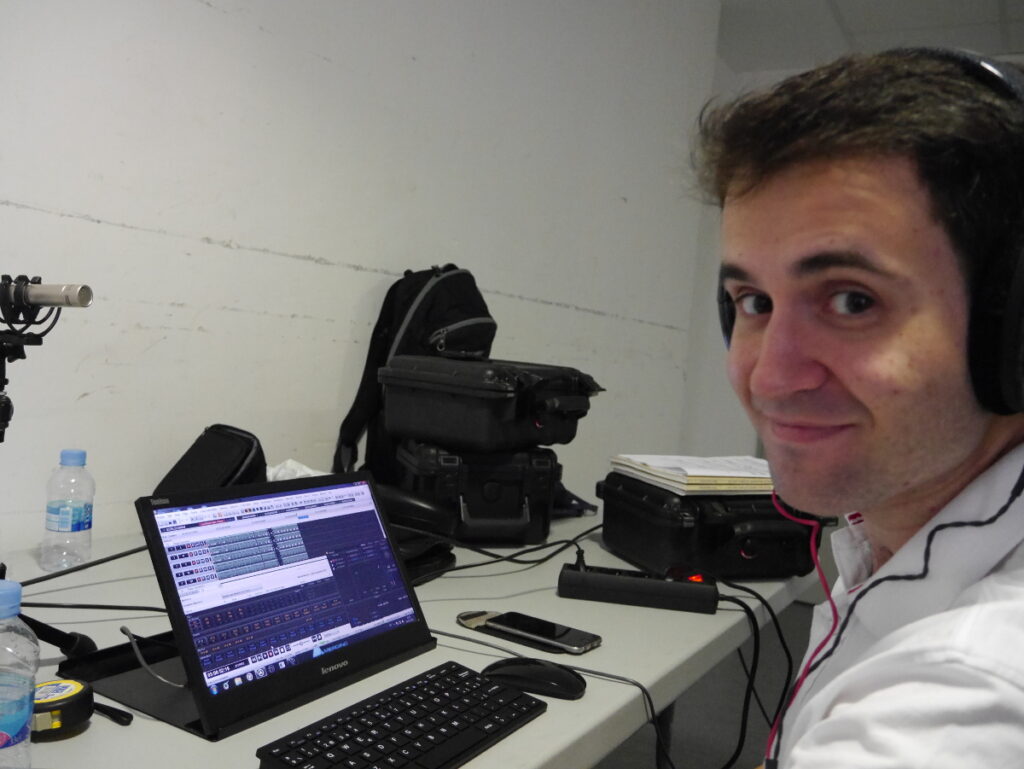
I find this type of combination lends itself to creating the best producers. Someone who was a musician and evolved into the world of production. Would you agree?
Oh yes, I would agree. I would even say for classical music and probably for all other music as well – though classical is what I know – I would say it is necessary. There is so much you need to know about the music: about intonation, the sound of the instruments, the way the musicians play… Even to follow the score, it is necessary for a producer to have come from that classical world. To have been a part of that world. In my opinion, anyway.
Do you remember when you started thinking about taking recording and producing seriously as a profession?
Yes actually, I remember the moment very vividly. It was sometime in 2011 or so, I was driving somewhere with my wife who is also a musician. At that time we were both teaching at the conservatory, each of us teaching our instruments, and we were quite unhappy with what we were doing. We needed a change. So we were driving one day and my wife just suddenly had this idea out of nowhere: ‘Why don’t we do that? Why don’t we take what is already there, and why don’t we change what we are doing? Why don’t we record and produce music instead of teach it?’ And that is how it all began, we were both very excited about the thought and we just ran with it.
So it sounds like your wife is the reason for where you are now, perhaps the reason Eudora began?
Oh yes, definitely. I remember that moment exactly that she had the idea. It was like an enlightenment moment, and it was totally her idea. For some reason it wasn’t in my mind at that moment, not at all. And has always been involved since the beginning. I handle most of the technical side of things, but she is involved daily with everything else. She also produces our albums fairly often. She is my partner, and more than an essential part of Eudora. It was her idea. She is also still performing professionally with the orchestra, which is part of the reason I am more involved with Eudora at this point. She’s not able to give as much time to it as I am because of that professional performance side of her life.
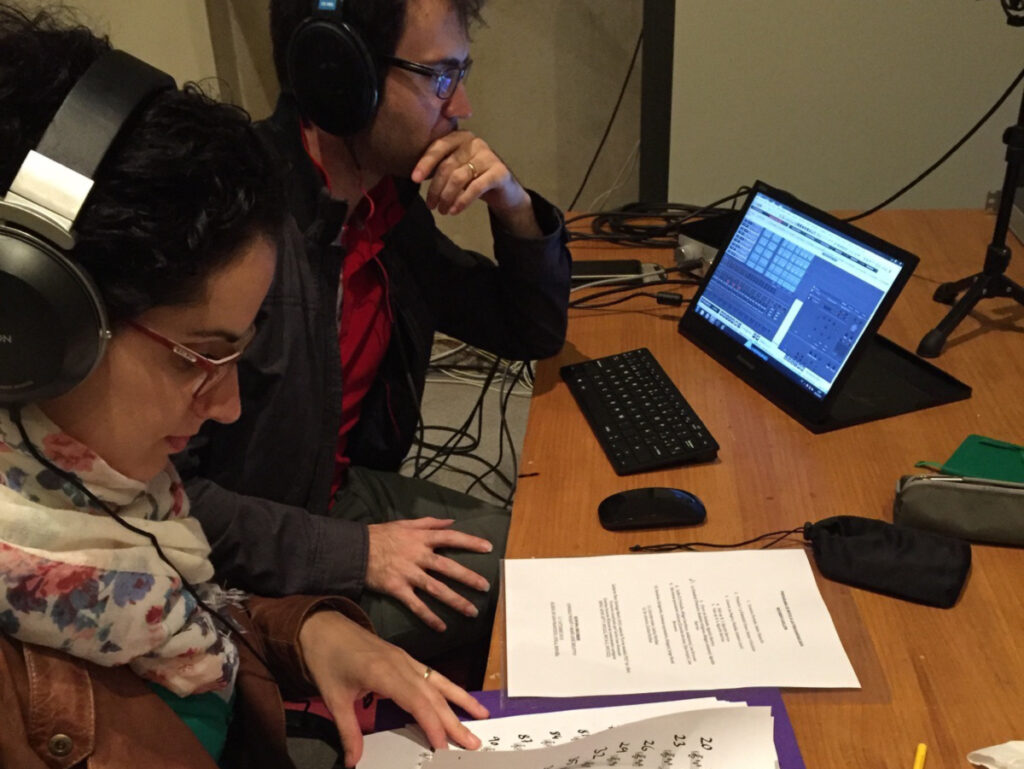
Do you remember Eudora Records being a difficult thing to get going?
Well we had a lot of musician contacts, so that helped. But the rest of it we built from scratch knowing nothing. Though to be honest it felt easy. There were challenges sure, but I was doing something I loved and was very excited about. If you really love something it doesn’t seem difficult, you just jump. I remember those times as a beautiful process, not something scary or difficult. Our motivation for it all really helped make it feel easy. And maintaining that motivation, that love for what I do, has meant that I have stayed quite busy over the years, which I’m so grateful for.
It is clear that you have. I’m curious, how many productions do you usually work on in a typical year? At NativeDSD we release quite a lot of music from Eudora, so it’s clear you stay busy.
Well that depends. Aside from the recordings for Eudora, I also do freelance recordings when I can. But for my label I usually do no more than ten recording sessions a year. We usually have around six or seven releases on average. That’s about all I can cope with myself.
When you first envisioned Eudora Records, was it always with the idea of recording in DSD?
Yes it was. I can remember when SACD was first released, I was very young, but for some reason since then it always stuck with me. I don’t know why, but I always had a fascination with that. So from the very beginning of creating the label I wanted to try that, and to see how DSD compared. So Eudora was conceived from the very beginning with DSD in mind. I can’t say why, or that it was a conscious choice, it just was. I have to admit, that’s kind of how everything with Eudora went. From the beginning it was created from the heart, not from the mind, and that’s how I’ve kept it. I try not to overthink decisions, I want to just go in the direction that I feel is right. And so far it hasn’t led me astray. I believe that when you start to think less, good things start to happen.
That sounds like an important life lesson – to lead with the heart and not overthink things. It makes me wonder about your teaching years when you said you were unhappy. How long were you teaching classical guitar before you started the label?
It was not very long, only three years or so. After the first year I knew already that it was not my path, my thing to do in life. I wasn’t happy with what I was doing and that meant I was already on the way to being a bad teacher. That also was not fair to the students because there’s nothing worse than having a teacher who doesn’t like to teach. So I knew very quickly that it wasn’t for me. And I’m happy – for myself and for any future students – that I found my path and made the change.
Well speaking of teaching and students, I wonder was there someone in your life that showed you the way with recording? Did you have a mentor or someone you looked up to who taught you how to make recordings?
No I was completely self-taught in recording. I read a lot in the very beginning. But the theoretical side of recording I feel is actually quite easy to study and to learn in four months or so. It’s not a mystery, you don’t need a 700 page manual in order to learn that type of stuff. The difficult side is in practicing that theory, and especially in having the background and knowledge of how different recordings sound. What I mean is that the difficult part of recording is to have the idea of the sound that you want to achieve. Getting to that is relatively easy, but you need to know what you want. And that takes time and many years of experience. Without an idea of the sound that you want to capture, it’s a nightmare. It’s like shooting in the dark, you’re adjusting a hundred things in the recording process – the microphones, spacing, angles, placement of musicians – hoping that at some point it will sound good. But good is not a sound, it is not a goal. You must first know the sound you want to achieve, and then you can adjust those things that help you capture it. That’s why I believe the very best producers usually stick to a few favourite microphones that they discovered over the years. They’re not always changing mics to change the sound. They know the sound they want, and they know how to achieve it.
Aha, that makes a lot of sense. So do you have your ‘bag of microphones’ that you always go to?
Yes well from the very beginning I was using the Sonodore RCM-402, the one with the small diaphragm. But for the last year or two I’ve moved to the other Sonodores that have a 1” diaphragm, the LDM-54, which I think are the best microphones in the world. They are omni-directional microphones so they better reflect the acoustic space, and these microphones are undeniably superior to almost all other microphones, in my opinion.
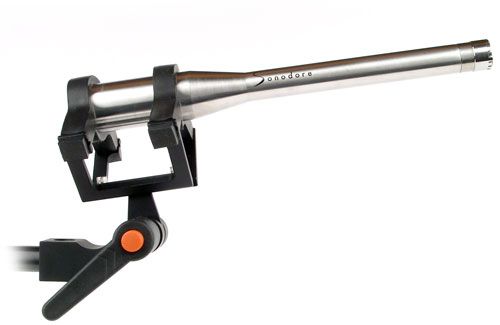
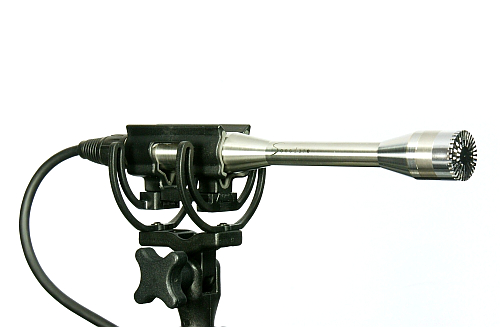
I’d like to change gears a bit and ask about the name ‘Eudora’. How did you come up with the name for your label?
Yeah sure. Well when I was still a performing guitarist I was very in to an unknown repertoire for guitar. It was chamber music with guitar from the 19th century – voice and guitar, flute and guitar, trios, quartets – and it was just a huge repertoire because it was during the golden age of the guitar, it was played all over Europe in homes. So I was very busy at that time looking for pieces from this unknown repertoire and I found a collection for voice and guitar and it was called Eudora, and I loved the sound of it. It is a Greek word and what it means is something like ‘nice present’, and somehow it resonated with me. It was a beautiful word with a beautiful meaning, and I always remembered it and decided to use it later for the label.
And what has been one of the best things about your journey with Eudora Records?
Well that’s a tough question to answer, there’s been so many great things. But something very personal I can share. I have always been a very shy and introverted person. I was always very busy with myself and worked a lot alone, but starting this label meant that I began having lots of contact with amazing people. I suddenly had to work with people, with great musicians, and I had to work hard to create a closeness with them, to open up a bit and be vulnerable. This is something I believe you need if you are going to create art together. And it has really changed me as a person, it has made my life so much richer. I feel very lucky for this unexpected gift of my profession.
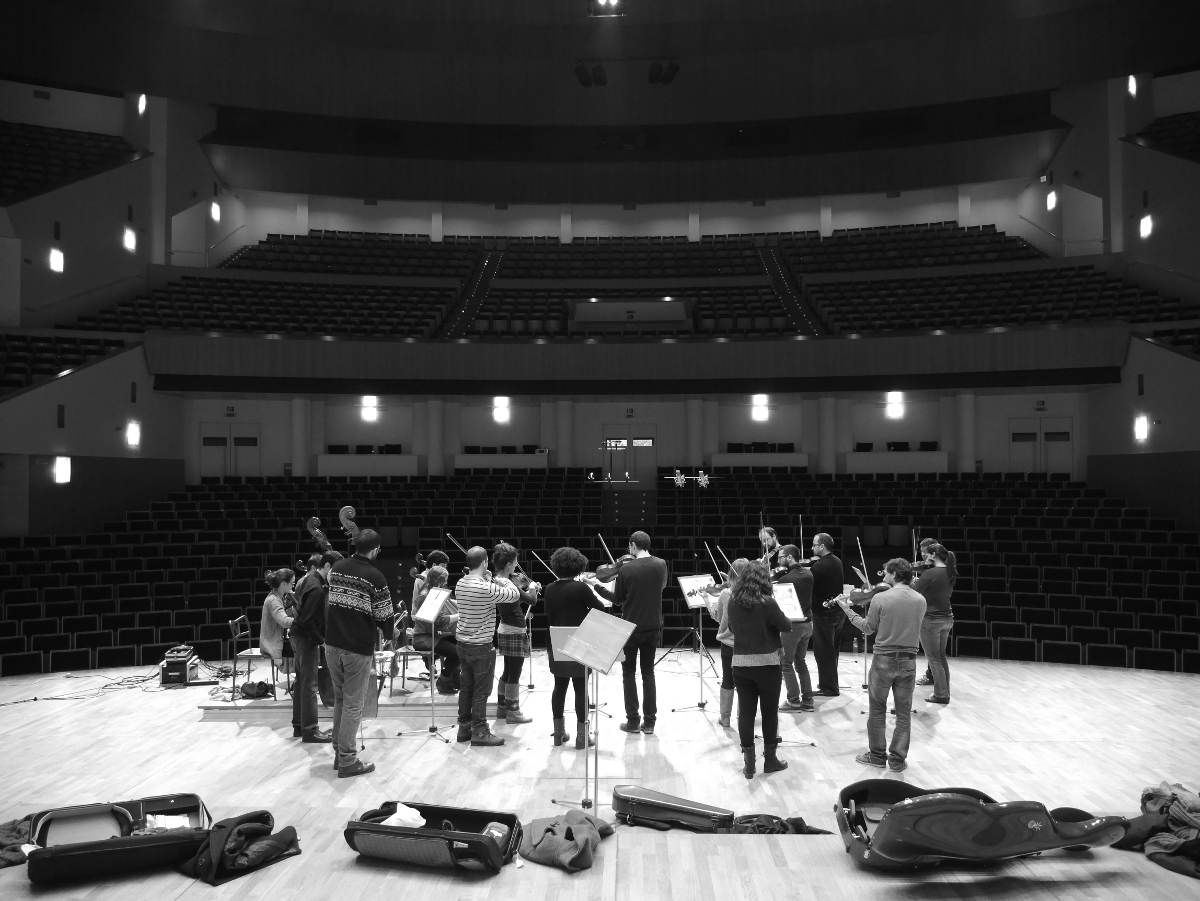
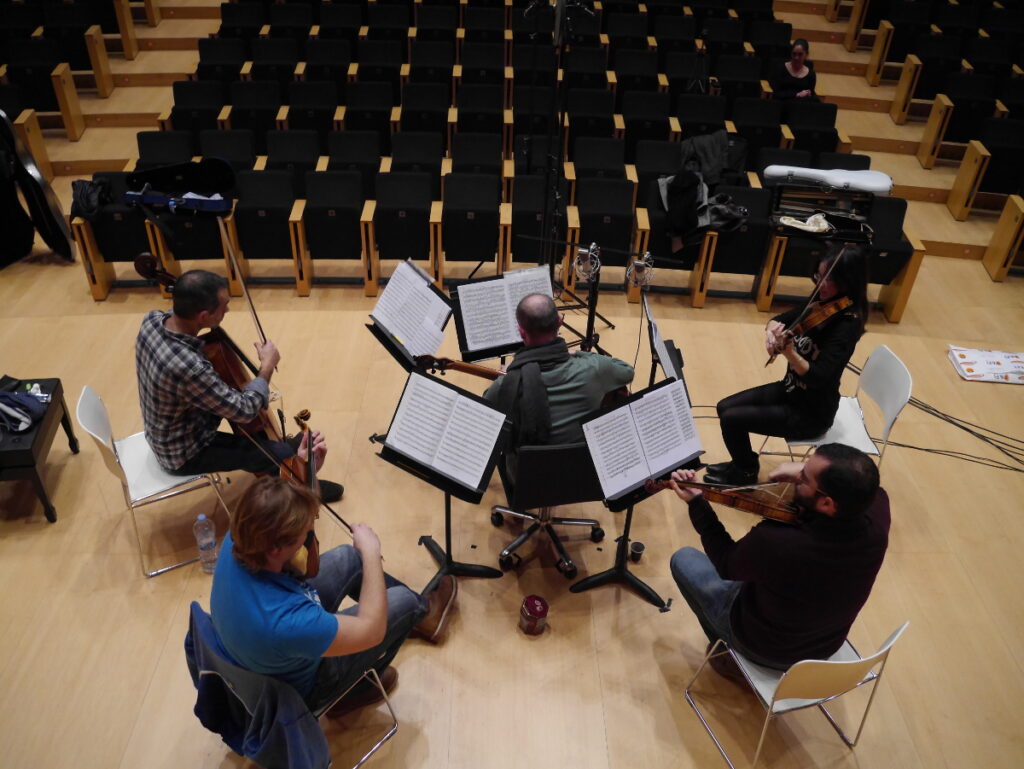
Well thanks so much for sharing Gonzalo. It has been an honor to get to know you as a person and as a producer. Your story is fascinating and inspiring, for myself and I sure for many of our readers and listeners at NativeDSD. I have just one more question for you before you go. Can you tell us your three ‘Desert Island Albums’? These are the albums from your collection that you would choose to take with you to a desert island above all else, the only three albums you’d be able to listen to for the rest of your life.
Oh man, that is difficult. Let me think… ah okay, for sure I know one of them. It’s the Schubert and Schumann album by Javier Laso. This one for sure because Javier is just from another world. His playing transcends the piano and, in a way, transcends the music itself. He really takes you on a spiritual journey, and it is beyond my understanding how someone like him is not super famous. It’s very strange to me. I would also have to choose something from Josep Colom, probably the Late Piano Sonatas & Bagatelles album because the music is from another world. These last three sonatas of Beethoven represent to me the pinnacle of our culture, of Western culture. Josep is like a poet of the piano, someone from another generation of conceiving the instrument. He’s very unique, he never plays a note just for the sake of playing it, he’s always telling you something with each note he plays. He’s also the most lovable person you can meet, and being able to record him so many times has been something unique for me, something I’m very grateful to have been able to do. I also have to choose The Violin and Harpsichord Sonatas from Andoni Mercero and Alfonso Sebastián. The music is amazing, the performance is amazing, and there’s something special I feel in the recording quality. The instruments, the music, and the church acoustics created something. They relate to each other in a way that created a sound that is very special, and I feel I was able to record that in a way that communicated that really well. So I’d have to choose those three, IF I had to choose! Haha, it’s a very difficult question.
I know I know, it’s not fair to ask you to choose between your ‘children’, but I appreciate you sharing why you’d choose those three! Gonzalo, I thank you for your time. I’ll let you go now so you can get back to creating amazing DSD records for us to enjoy.
Gonzalo’s Desert Island Albums
-
The Violin and Harpsichord Sonatas [Double Album] [Pure DSD]€20,99 – €37,49
-
Schubert and Schumann: Sonata D. 960 – Davidsbündlertänze, Op. 6 [Pure DSD]€17,99 – €47,49
-
The Late Piano Sonatas & Bagatelles [Pure DSD]€16,99 – €34,49

![The Violin and Harpsichord Sonatas [Double Album] [Pure DSD]](https://media.cdnb.nativedsd.com/storage/nativedsd.com/wp-content/uploads/2022/09/05144315/EUDDR2205-300x300.jpg)
![Schubert and Schumann: Sonata D. 960 - Davidsbündlertänze, Op. 6 [Pure DSD]](https://media.cdnb.nativedsd.com/storage/nativedsd.com/wp-content/uploads/2021/04/16091910/EUDDR2103-scaled.jpg)
![The Late Piano Sonatas & Bagatelles [Pure DSD]](https://media.cdnb.nativedsd.com/storage/nativedsd.com/wp-content/uploads/2020/07/02123558/EUDDR1901-2-scaled.jpg)